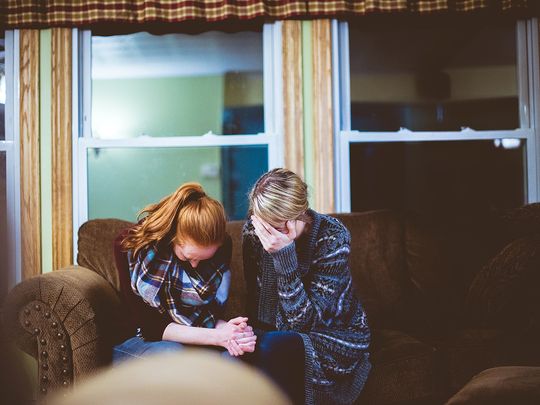
When someone yawns in your vicinity, you likely find yourself yawning seconds later. But when someone close to you is stressed out, do you feel that stress too?
Click start to play today’s Spell It, where we learn how the rise and ‘fall’ of emotions of people around us can affect us in ways we don’t even realise.
Is stress contagious? According to a November 2023 report in the US-based science publication Discover Magazine, humans’ tendency to mimic and spread the emotions of those around them is known as emotional contagion. This doesn’t have to be a negative emotion – if someone gives you good news, their positive energy and happiness can feel infectious. Similarly, if someone is stressed or exhausted, their negative energy can seem to rub off on you.
According to a July 2020 report in the US-based website Harvard Health, our stress reaction – where the body begins to release hormones like cortisol and adrenaline – can be triggered in response to other people, experiences, and the environment around us.
If you’re experiencing anxiety or distress because you’re interacting with someone who is stressed, you might be experiencing second-hand stress. A July 2017 study published in the journal Scientific Reports found that stressed out people’s emotional state and behaviours can, in fact, affect people around them, regardless of their empathy levels.
Here are some ways to minimise the second-hand stress that we experience:
1. Identify the stressor
The first thing to do is pinpoint the source of your stress, and then, if possible, try to distance yourself from it.
2. Set boundaries
Try to set some boundaries that will help you, and the person who is experiencing stress. For instance, if your partner works from home, they might carry their work stress around in a place that’s meant to be peaceful and relaxed. Establish boundaries so that they can leave their work stress in their home office, and step away from it physically and psychologically.
3. Regain control
Take adequate breaks throughout the day, exercise regularly, sleep and eat well, and talk to someone about how you’re feeling, so that you’re able to manage your emotions better. This way, even if you’re dealing with stress, you know you have the resources and capabilities to manage the situation without feeling overwhelmed. The key is to know that it will pass, and that you can handle it.
How do you cope with second-hand stress? Play today’s Spell It and tell us at games@gulfnews.com.





